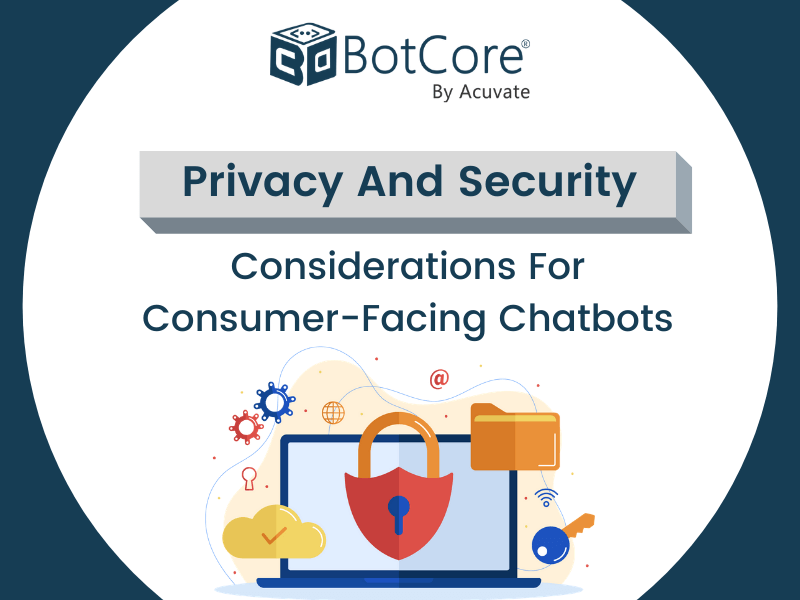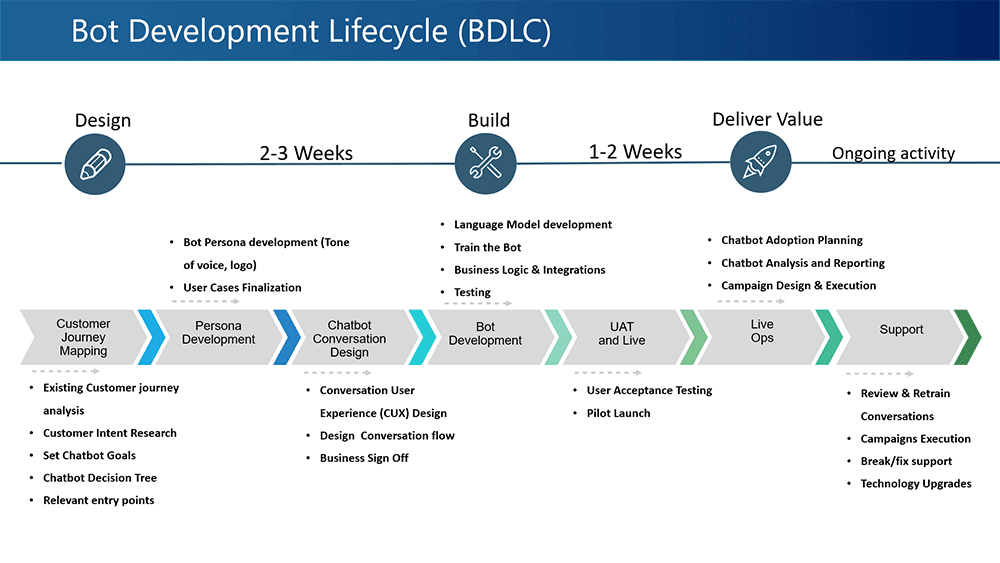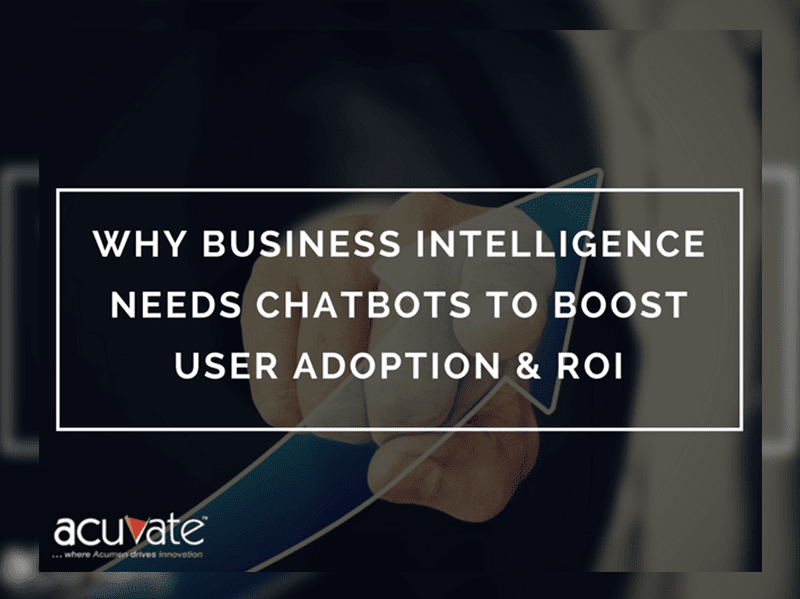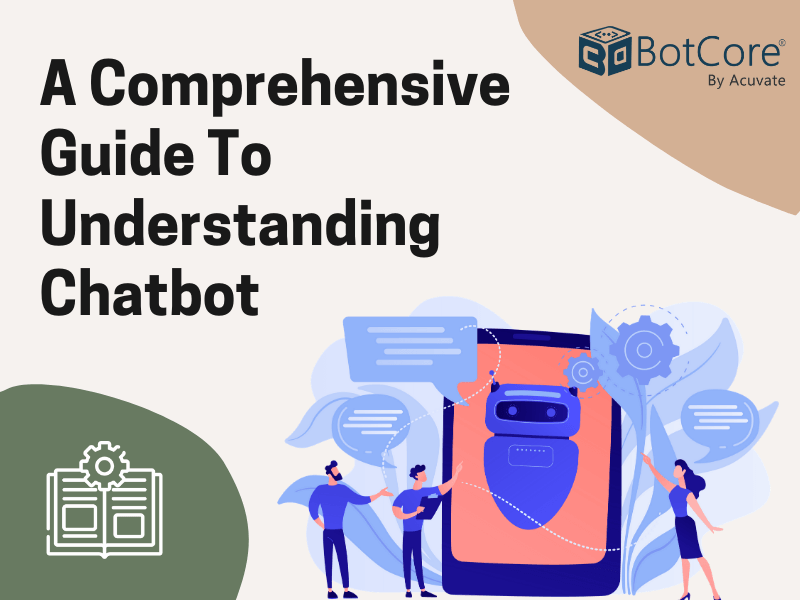In the rapidly evolving world of B2B chatbots, ensuring data security and privacy has become paramount. With the increasing use of chatbots to streamline and enhance customer interactions, companies are realizing the importance of safeguarding sensitive information. Data Security in B2B Chatbots addresses these concerns, offering effective measures to protect confidential data while still delivering exceptional results. This article explores the significance of data security in the realm of chatbots, providing insights into the strategies and safeguards being implemented to guarantee privacy for both businesses and customers.

This image is property of botcore.ai.
I. Overview of B2B Chatbots
B2B chatbots have become increasingly popular in recent years as businesses recognize their potential to streamline processes and improve customer interactions. These chatbots are computer programs designed to interact with users in a conversational manner, providing information, answering queries, and even executing tasks. They can be integrated into various platforms, such as messaging apps or websites, allowing businesses to engage with their customers in a convenient and efficient manner.
1. Definition and Functionality of B2B Chatbots
B2B chatbots are AI-powered virtual assistants that are specifically designed to cater to the needs of businesses. They are programmed to understand and respond to queries related to various B2B services, such as product information, order status, invoicing, and technical support. These chatbots leverage natural language processing (NLP) and machine learning algorithms to mimic human-like interactions, providing a personalized experience to users.
Functionality-wise, B2B chatbots can automate repetitive tasks, provide instant responses, and gather customer data for analysis. They can handle a wide range of tasks, from lead generation and customer support to sales assistance and appointment scheduling. By automating these tasks, businesses can save time, reduce operational costs, and enhance overall customer experience.
2. Growing Importance of B2B Chatbots in Business Processes
The importance of B2B chatbots in business processes cannot be overstated. As technology continues to advance, businesses are increasingly realizing the value of utilizing chatbots to streamline their operations and deliver better customer experiences. Chatbots ensure the availability of support around the clock, which is particularly crucial in today’s globalized business landscape. They can handle multiple conversations simultaneously, ensuring that customer queries are promptly addressed.
Moreover, B2B chatbots are instrumental in capturing and analyzing customer data. They can track customer behavior, preferences, and pain points, providing valuable insights that businesses can use to refine their products and services. By leveraging these insights, businesses can make data-driven decisions and tailor their offerings to meet the specific needs of their B2B customers.
II. Understanding Data Security in B2B Chatbots
While B2B chatbots offer numerous benefits, it is essential to prioritize data security and privacy. These chatbots interact with customers and collect sensitive information, such as financial data, personal details, and confidential business information. Failure to protect this data can have severe consequences, including reputational damage, legal liabilities, and loss of customer trust. Therefore, businesses must understand the importance of data security in chatbot implementations.
1. Importance of Data Security in Chatbot Implementations
Data security is crucial in chatbot implementations for several reasons. First and foremost, it is essential to maintain the privacy and confidentiality of customer information. Customers trust businesses with their data, and any breach can lead to significant consequences, both for the individuals affected and for the reputation of the business. Therefore, implementing robust data security measures is not just a legal and ethical obligation but also a means of building trust with customers.
Secondly, data security is closely linked to compliance with data protection regulations, such as the General Data Protection Regulation (GDPR) in the European Union. Failure to comply with these regulations can result in severe penalties and legal actions. Therefore, businesses must ensure that their chatbot implementations adhere to these regulations and protect customer data according to the required standards.
2. Potential Risks and Threats to Data Privacy in B2B Chatbots
Implementing B2B chatbots without proper data security measures can expose businesses to various risks and threats to data privacy. Some of the common risks include unauthorized access, data breaches, and data manipulation. Hackers and malicious actors may attempt to exploit vulnerabilities in chatbot systems to gain access to sensitive information or tamper with the data.
Additionally, there is a risk of accidental data leakage or mishandling of data by employees or third-party service providers. Inadequate encryption, weak access controls, and lack of user authentication can further exacerbate these risks. To mitigate these threats, businesses must adopt comprehensive security measures that protect data at every stage of interaction with the chatbot.
III. Privacy Measures in B2B Chatbots
To ensure data security and privacy in B2B chatbots, businesses need to implement robust privacy measures. These measures encompass various aspects of data handling, storage, and access control. By implementing these measures, businesses can establish a secure environment for their chatbot interactions and safeguard customer data.
1. Secure Data Storage and Encryption
One of the foundational privacy measures is to ensure secure data storage and encryption. All customer data collected by the chatbot should be stored in encrypted databases or secure cloud storage. Encryption adds an additional layer of protection, ensuring that even if the data is compromised, it remains unreadable and unusable. Businesses should also implement strict access controls and protocols to ensure that only authorized personnel have access to the stored data.
2. Role of User Authentication and Authorization
User authentication and authorization are paramount to ensuring data privacy in B2B chatbots. Strong authentication mechanisms, such as multi-factor authentication, should be implemented to verify the identity of users before granting access to sensitive information. This ensures that only authorized individuals can interact with the chatbot and access confidential data. Additionally, businesses should implement role-based access controls to restrict access to specific data based on the user’s role and responsibilities.
3. Compliance with Data Protection Regulations (e.g., GDPR)
To ensure data privacy, businesses must comply with relevant data protection regulations, such as the GDPR. This includes obtaining informed consent from users before collecting their data, providing options for data erasure, and implementing privacy-by-design principles. Businesses should also maintain clear and transparent privacy policies that outline how customer data is handled and protected.
4. Anonymization and Pseudonymization Techniques
Anonymization and pseudonymization techniques can further enhance data privacy in B2B chatbots. Anonymization involves removing identifying information from the data, ensuring that it cannot be linked back to an individual. Pseudonymization, on the other hand, replaces identifiable information with pseudonyms, keeping the data useful for analysis while protecting individual privacy. By incorporating these techniques, businesses can minimize the risk of exposing sensitive customer data while still deriving meaningful insights from the collected data.
IV. Best Practices for Secure B2B Chatbot Implementations
Implementing secure B2B chatbots requires adherence to best practices that prioritize data security and privacy. By following these practices, businesses can minimize the risk of data breaches and ensure a secure environment for their chatbot interactions.
1. Robust Authentication and Access Controls
Implementing robust authentication mechanisms, such as multi-factor authentication, helps ensure that only authorized individuals can access the chatbot and the data it collects. Businesses should enforce strong password policies and regularly review access privileges to prevent unauthorized access. By implementing strict access controls, businesses can significantly mitigate the risk of data breaches.
2. Regular Data Audits and Risk Assessments
Regular data audits and risk assessments are essential to identify and address vulnerabilities in B2B chatbot implementations. Businesses should conduct periodic audits to ensure data security measures are up to date and effective. Risk assessments can help identify potential threats and prioritize security measures accordingly. By regularly evaluating data security practices, businesses can proactively address any weaknesses in their chatbot systems.
3. Implementing Secure Communication Channels
Chatbots interact with users through various communication channels, such as messaging apps or websites. It is crucial to secure these channels to protect data during transmission. Implementing secure protocols, such as HTTPS, ensures encrypted communication between the chatbot and the user. Businesses should also regularly update communication channels to address any known vulnerabilities.
4. Employee Training and Awareness Programs
Human errors and lack of awareness can undermine data security efforts. Therefore, businesses should invest in employee training and awareness programs to educate their workforce about data security best practices. By fostering a culture of security awareness, businesses can ensure that employees understand the importance of data security and actively contribute to maintaining a secure chatbot environment.

This image is property of cdn-cmdga.nitrocdn.com.
V. Case Studies on Data Security in B2B Chatbots
To illustrate the practical implementation of data security measures in B2B chatbots, let’s explore two case studies from different industries.
1. Case Study 1: Secure B2B Chatbot in Financial Services Sector
In the financial services sector, data security is of utmost importance due to the highly sensitive nature of the information handled. A secure B2B chatbot was developed to assist customers with account inquiries, fund transfers, and investment advice. To ensure data security, the chatbot implemented robust authentication measures, including multi-factor authentication and biometric recognition. All customer data collected by the chatbot was encrypted and securely stored in compliance with industry regulations. Regular data audits and vulnerability assessments were conducted to identify and address any potential security risks.
2. Case Study 2: Data Privacy in B2B Chatbot for Healthcare Industry
In the healthcare industry, protecting patient data is critical to maintain trust and comply with privacy regulations. A B2B chatbot was implemented to handle appointment scheduling, medication inquiries, and general health advice. To ensure data privacy, the chatbot anonymized all patient data, removing any identifiable information and encrypting the remaining data. User authentication was enforced to ensure that only authorized healthcare providers could access patient information. Regular employee training programs were conducted to educate staff on data security best practices and the importance of patient confidentiality.
VI. Benefits of Data Security in B2B Chatbots
Implementing robust data security measures in B2B chatbots offers numerous benefits for businesses and their customers.
1. Establishing Trust and Customer Confidence
By prioritizing data security, businesses can establish trust and confidence among their B2B customers. When customers trust that their data is being handled securely, they are more likely to engage with the chatbot and share valuable information. This trust forms the foundation for productive B2B relationships, leading to increased customer loyalty and satisfaction.
2. Mitigating the Risk of Data Breaches and Loss
Data breaches can have devastating consequences, including financial loss, reputational damage, and legal liabilities. Implementing robust data security measures in B2B chatbots significantly mitigates the risk of these breaches. By encrypting sensitive data, enforcing strong authentication, and regularly auditing security practices, businesses can minimize the likelihood of data breaches and limit the impact if they occur.
3. Enhanced Compliance with Legal and Regulatory Requirements
Data protection regulations, such as the GDPR, impose strict requirements on businesses handling customer data. By implementing data security measures, businesses can ensure compliance with these regulations and avoid costly penalties. This commitment to data security also demonstrates a commitment to ethical and responsible business practices, further enhancing the reputation of the business.
4. Building Stronger Business Relationships
B2B chatbots that prioritize data security can help businesses build stronger relationships with their customers. By protecting customer data and providing a secure environment for engagement, businesses demonstrate their commitment to the privacy and confidentiality of their B2B partners. This fosters a sense of trust and reliability, leading to long-term partnerships and potential business growth.

This image is property of cdn-cmdga.nitrocdn.com.
VII. Challenges and Future Directions in B2B Chatbot Data Security
While data security in B2B chatbots has come a long way, several challenges and future directions need to be considered to stay ahead of evolving threats and ensure continuous improvements in data privacy.
1. Continual Threats and Evolving Security Landscape
The threat landscape is continually evolving, and new vulnerabilities emerge regularly. Businesses must stay updated on the latest security threats and proactively address them. This requires robust monitoring systems, regular security patches, and an agile approach to security management.
2. Advancements in AI and Machine Learning for Enhanced Data Security
Advancements in AI and machine learning present opportunities to enhance data security in B2B chatbots. AI-powered security systems can detect anomalies, identify suspicious activities, and respond in real-time. By combining AI with user behavior analytics, businesses can identify potential threats before they materialize and take immediate action.
3. Standardization of Privacy Measures across B2B Chatbot Platforms
Standardization of privacy measures is crucial to ensure consistent data security practices across different B2B chatbot platforms. Industry collaboration and the development of standardized security protocols can help establish common practices and guidelines for protecting data in chatbot implementations. This can simplify the implementation process for businesses and enhance interoperability between different chatbot platforms.
VIII. Conclusion
Data security in B2B chatbots is a critical aspect of ensuring privacy and building customer trust. By implementing robust privacy measures, businesses can protect sensitive customer data, comply with data protection regulations, and mitigate the risk of data breaches. Secure B2B chatbots offer numerous benefits, including enhanced customer confidence, stronger business relationships, and compliance with legal and regulatory requirements. However, businesses must remain vigilant and adapt to evolving security threats. By embracing advancements in AI and machine learning and standardizing privacy measures, businesses can continue to deliver secure and reliable B2B chatbot experiences.

This image is property of botcore.ai.
